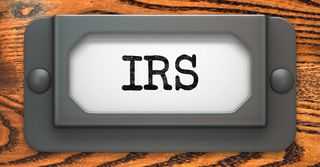

Grocery stores are often full of minor annoyances most people brush off and forget about quickly after exiting the store. Yet, there is one thing that never ceases to get under the skin of impatient shoppers.
That is when a person in front of them pays with a check.
Even if it only takes a few more seconds to write out the check than it would to swipe a card, the people in line behind the check-writer are usually thinking, “Who still uses checks?” Using checks does seem like an anachronism.
Almost every store has a credit card machine. Bills can easily be paid automatically online or by phone. There is very little need to even have a checkbook in day-to-day life. Thus, the check-writer at the grocery store annoys us.
Nevertheless, there is one entity to which Americans routinely write checks: the IRS.
Every year, millions of Americans dust off their checkbooks when it is time to pay the government. For one group of people, that is going to become more difficult in 2016. Starting next year, the IRS will no longer accept checks for $100 million or more. This is because large checks have to be processed manually, which leads to more mistakes. Forbes reported this story in “IRS to Refuse Checks Greater Than $100 Million Beginning in 2016.”
Of course, this new policy will not affect most people. On the other hand, if you are an estate administrator of a large estate with estate taxes to pay, then take note and arrange another method to pay the IRS.
For more information about estate planning, please visit my estate planning website.
Reference: Forbes (September 8, 2015) “IRS to Refuse Checks Greater Than $100 Million Beginning in 2016.”


